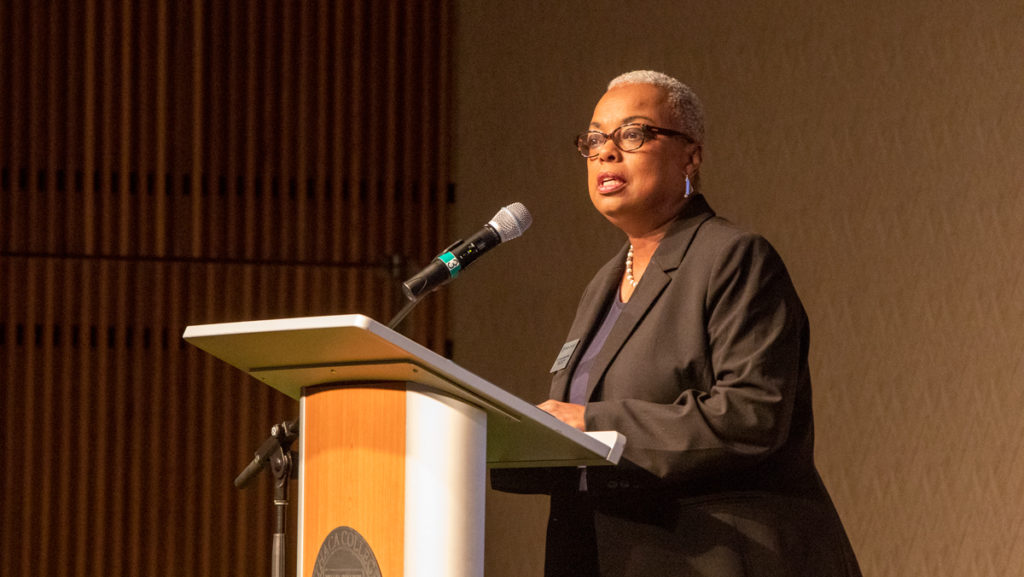Members of the Ithaca College Faculty Council have raised concerns about transparency between faculty members and the administration.
At the most recent Faculty Council meeting, held Oct. 1, Jennifer Wofford, director for the Office of Extended Studies, discussed the administration’s new plan to determine which courses are offered over the summer. The Office of Extended Studies will create the course list and then present the list to faculty rather than asking first which faculty members are interested in teaching summer courses. A faculty member voiced a concern regarding the lack of collaboration and communication with faculty members by the Office of the Provost.
Thomas Pfaff, professor in the Department of Mathematics, echoed these concerns in an email sent to faculty members on Oct. 7. In the email obtained by The Ithacan, Pfaff wrote that the minutes from the meeting stated, “’How does the decision to change the process in the ways that you have described reflect shared governance?’ Wofford responded that she had developed the proposal, and the provost had approved it. Beyond that, she could not say.”
In the email, Pfaff wrote that the administration approved Wofford’s proposal for the summer curriculum without faculty input. He also wrote that there have been other situations in which La Jerne Cornish, provost and senior vice president for academic affairs, did not communicate with faculty members before making decisions.
Cornish told The Ithacan via email that she is aware that there is some concern about the changes to the summer session course selection process, but did not comment further.
One of Pfaff’s other concerns was that Gordon Rowland, director of the Center for Faculty Excellence, was appointed by Cornish without discussion with faculty members about the transition process. In the email, he also wrote that he felt Cornish was not adequately communicating with faculty when responding to concerns about the enrollment of senior Joe Germinerio, a transfer student on the football team. Additionally, he wrote that there was not enough collaboration with faculty when she approved the increase of summer stipends for chairs or when she increased the pay for promotion to full-time faculty. He also wrote that the
requirements for post-sabbatical talks, which are sponsored by the Office of the Provost, are not clear either.
“A general concern [is] that the administration is not really collaborating with faculty when they’re making decisions,” he said in an interview with The Ithacan. “Not necessarily the decisions themselves are good or bad but that they’re being made without really any conversation with faculty. And when you do that, you’re making decisions with limited information. And that’s going to lead to — or can lead to — less good decisions.”
Pfaff said some faculty have shared similar sentiments with him.
“I don’t think this is new,” he said. “When administration makes decisions without telling anybody, sometimes it takes a while to find out the decisions are actually made. And so I think it’s now starting to come into view that maybe there’s some things going on that we just don’t know about or decisions that just appear to happen, or we don’t even find out because nobody even told us.”
Chris McNamara, Faculty Council chair and clinical associate professor and clinic director in the Department of Physical Therapy, said she is aware of these concerns. She said she is planning to discuss the matter with the Faculty Council Executive Committee.
Cornish said via email that Jeane Copenhaver-Johnson, associate provost for academic programs, will address these concerns at the next Faculty Council meeting in November.








